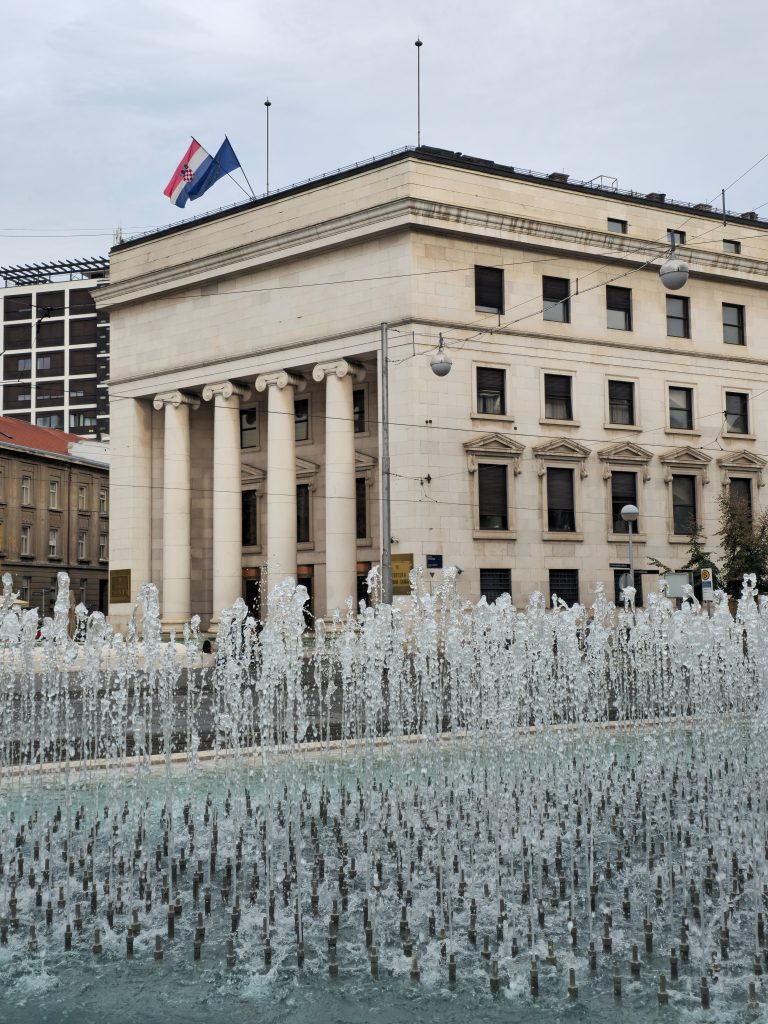November the 30th, 2023 – Boris Vujčić, the Governor of the Croatian National Bank (CNB) has revealed that although inflation is heading in the desired direction, the path isn’t going to be a quick one. Nor will it be smooth.
As Poslovni Dnevnik/Boris Vujčić writes, there’s something known as the “iron rule of forecasting”, coined by the American economist Edgar Fiedler: No one can escape the iron rule that once you make a forecast, you know you’re going to be wrong; you just don’t know when and in which direction! This has manifested itself unusually cruelly here in Croatia over the past couple of years. A series of unusual disturbances affected the functioning of economic mechanisms and made most projections obsolete, often at the very time of their publication. Inflation projections were particularly wrong, and since mid-2021 they have persistently and noticeably exceeded the projections.
However, professional forecasters – including those from central banks – have partially repaired their damaged credibility over more recent months. Since it peaked at the end of last year, the downward trajectory of inflation in the Eurozone has strengthened, as projections have repeatedly predicted it would.
That said, the process of inflation returning to the target will not go smoothly or rapidly. Inflation will thus continue to oscillate from month to month due to the interplay between the still elevated uncertainty and the prices of energy and raw materials, as well as the “washing out” of past volatility from annual inflation rates.
A Strong labour market

The risks of inflation significantly deviating from projections are still being highlighted, but they’re currently much more balanced than they were last year. The danger of inflation proving more stubborn than expected is, in addition to the risks for energy and raw material prices arising from global geopolitical tensions, mainly related to the extremely strong labour market and record low unemployment rates. For now, such a state of the labour market keeps wage growth above levels that would be in line with the return of inflation to the target level of two percent, if profit margins don’t at least partially absorb wage growth, which is what the European Central Bank expects.
However, the possibility that the tightening of monetary policy and the slowdown of economic activity will bring inflation closer to the goal even before 2025, as currently predicted, can’t yet be ruled out. That’s why the Governing Council of the European Central Bank will continue to closely monitor every new piece of data that is published and, if necessary, adjust the monetary policy to the change in the outlook for inflation.
So far, central bankers have shown that they’re able to tame inflation without excessively damaging the economy or the financial system. Growth slowed down considerably as a result of higher energy prices and more expensive sources of financing, but the Eurozone didn’t end up sinking into recession. The continued slowdown in inflation and the gradual recovery of real wages should push down the growth of personal consumption. Growth should also be supported by foreign demand stimulated by the strengthening of the global economy. If there are no major new shocks, and if a recession does occur, it will be one of the shortest and shallowest recessions ever recorded.
Boris Vujčić says the Croatian economy has coped well

The Croatian economy has been coping exceptionally well with the “headwinds” of an unfavourable international environment and tight financing conditions. Just one year ago, when there were signs of a slowdown under the influence of the faltering major European economies, a sharp jump in foreign demand for services once again boosted growth. Back during the middle of this year, in somewhat similar circumstances, fiscal expansion, largely focused on wage growth, and the consequent strengthening of consumption, proved crucial.
The improvement in the terms of trade associated with the rising prices in tourism and the reduction in the prices of imported energy and raw materials also contributes to the growth of incomes and consumption. The role of record disbursements of money from EU funds that finance the growth of public investments is also noteworthy. In the fourth quarter of 2023, the strengthening of domestic demand is already visible, and the domestic economy should maintain its momentum in the following year, with growth that might even surpass this year’s.
The expected acceleration of growth partly reflects the downward revision of expectations for this year due to the fact that the Central Bureau of Statistics recently lowered its growth estimates for the first half of this year. In the conditions of falling unemployment to the minimums in the time span of several past decades, even when it comes to the domestic labour market, despite the strong import of labour, there are increasingly pronounced deficits that limit economic growth and additionally stimulate wage growth.
At the same time, the rate of Croatian employment growth follows the expansion of economic activities, which means that productivity growth, which represents the only long-term sustainable source of increasing the standard of living, has stopped. Productivity stagnation is probably partly related to the structure of growth, which is currently based on the segment of service activities with lower added value. However, the slowdown in productivity growth could be partially structural in nature, linked to changes in workers’ preferences after the pandemic, such as a desire for shorter working hours or a greater preference for working from home.
Consumer optimism

In addition to the stagnation of productivity, the fight against spiralling inflation has also been made more difficult by the strengthening of consumer optimism, which is supported by strong lending to the population, for housing as well as consumer purposes. On the other hand, the transmission of monetary policy is strong where it is most important for the fight against inflation.
Interest rates on company loans and deposits grew quickly and strongly, meaning that loans to companies stopped growing in the middle of the year. Inflation differentials in relation to the Eurozone, which are currently determined by the greater representation of expensive food in consumption and the success of the tourism sector, certainly can’t remain elevated for too long if they aren’t closely accompanied by a corresponding increase in the attractiveness of the goods and services offered to the global market. If this was to be the case, it would quickly lead to a loss of competitiveness and deflationary pressures on prices.
Whatever path the Croatian economy takes in the coming year, as noted by the aforementioned Fiedler, it’s more than certain that the public will continue to expect more precision from forecasters than they can deliver. In turn, forecasters, in accordance with Fiedler’s advice, will continue to revise their projections frequently.










